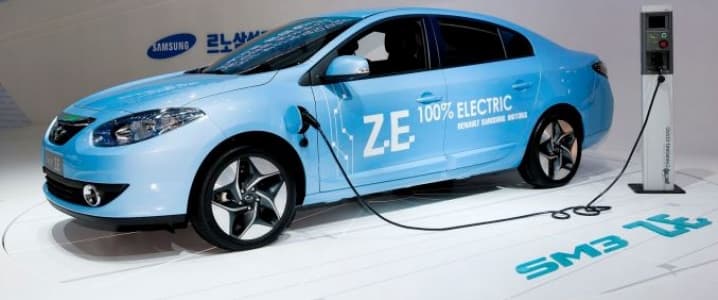Tesla is still a synonym for luxury electronic vehicles (EV), but this may change in the not-too-distant future as fresh competition emerges—not just from the likes of BMW and Mercedes-Benz—but from startups that are poaching engineering and management talent from Tesla and using it to challenge the company on its home turf.
Besides their goal, these companies have another thing in common: Chinese money.
Atieva, one of those startups, recently unveiled plans to release a luxury EV sedan dubbed Edna within two years. The company, whose Chief Technology Officer is Peter Rawlinson, who led the engineering of Tesla’s Model S, is funded by a variety of investors, among them Beijing Auto and LeEco—a software company owned by entrepreneur Jia Yueting.
Another Tesla competitor hopeful, Faraday Future, also based in California, like Tesla and Atieva, is funded by Jia as well. The company, which has announced plans to start production of its EV in the U.S., recently snapped up top Ferrari manager Marco Mattiacci to oversee everything from branding to sales and customer experience. Faraday Future, like Atieva, doesn’t yet have a car ready for mass production, but it’s in the process of building a plant in Nevada where it will make its FFZero1.
Two other young companies that have significant involvement from Jia Yueting and other Chinese sources of funding are NextEV and LeSEE. Actually, the latter is a creation of Jia, a unit of his conglomerate LeEco. The former has financial backing from a number of Chinese internet majors, among them co-founder William Li, founder of online marketing giant Bitauto. Related: Why Has There Been So Little M&A Activity During The Oil Crisis
All these companies are using similar tactics: get the talent from the big guys and don’t spare the money. The race is on and it’s a fast one, in more than one sense. The luxury segment of the EV market has been pretty empty until recently but now, it seems, it has started to become more lucrative and investors—private equity and venture capital, as well as industrial giants such as Japan’s Mitsui, for example—are pouring billions into it. That’s one reason, with production costs falling and the popularity of EVs growing. The other is that luxury car buyers easily get bored and need new features that make these cars stand out from the mainstream production.
Tesla is not complacent—far from it. Elon Musk’s company just last month raised $1.7 billion in fresh funds with a share placement that will be used for expanding the production of its best-seller in the luxury segment, the Model S sedan, due to high demand.
One recent study from Lux Research notes that innovations in luxury EVs are trickling down to the mainstream. Slowly, the study’s authors acknowledge, but steadily. This means that to stay on top of things, luxury EV makers need to constantly come up with new and better features to satisfy demand in this segment—demand which is apparently pretty solid, judging by all these startups blossoming here and there, or rather, in the U.S. and China. The fact that Chinese businesses are investing so heavily in this industry is no coincidence or the latest example of the Chinese joining the latest hype. The U.S. and China are the two largest markets for EVs. Markets that are still relatively young and offering sweet opportunities. It would have been obscene to fail to take advantage of this.
By Irina Slav for Oilprice.com
ADVERTISEMENT
More Top Reads From Oilprice.com:
- Hedge Funds Betting On $100 Oil
- Will This Commodity Rebound Continue?
- Rebels And Tax Avoidance: Chevron’s Problems Pile Up



















Overall it sounds like to me that these companies missed the boat. Tesla is making cars, these guys are just talk, which, if I remember correctly, is easy.